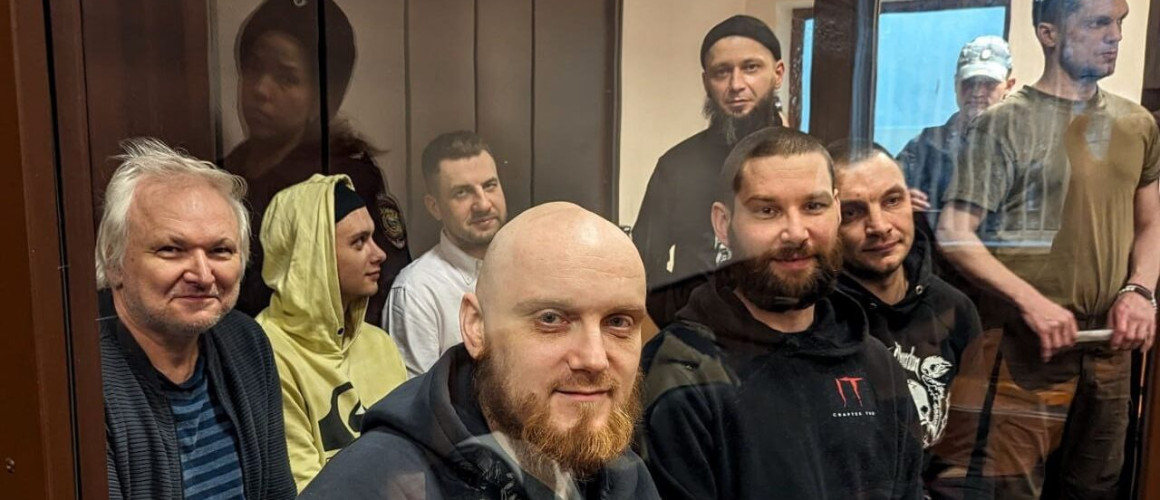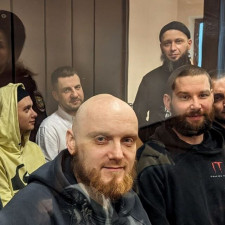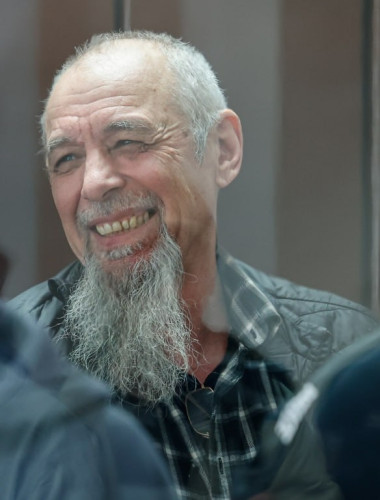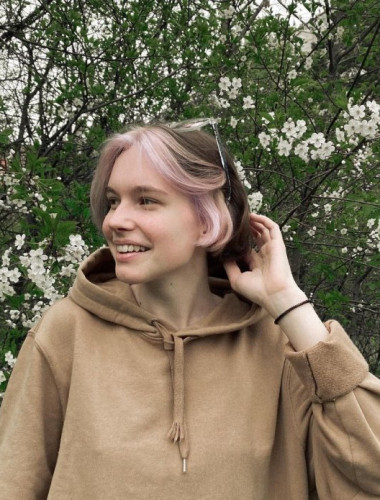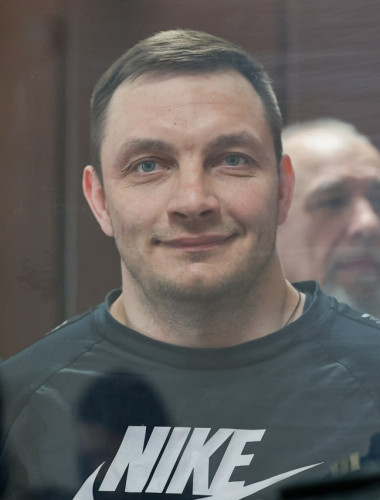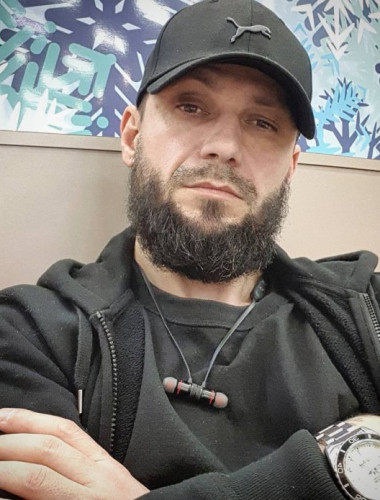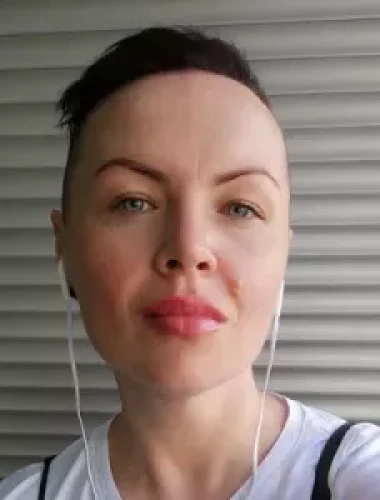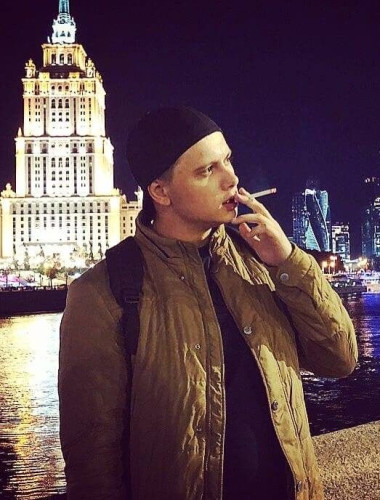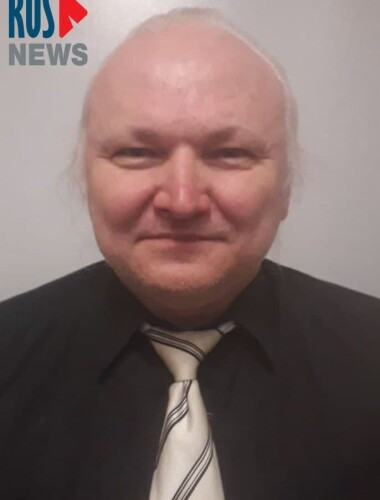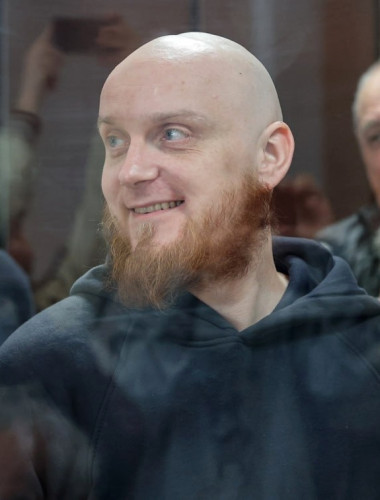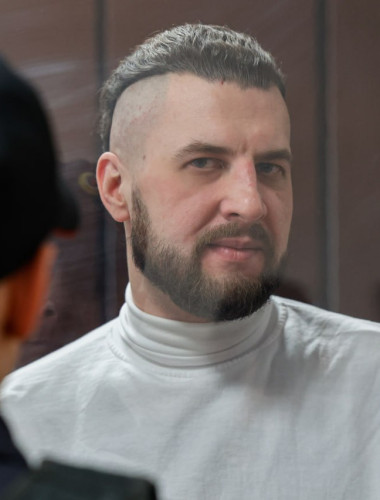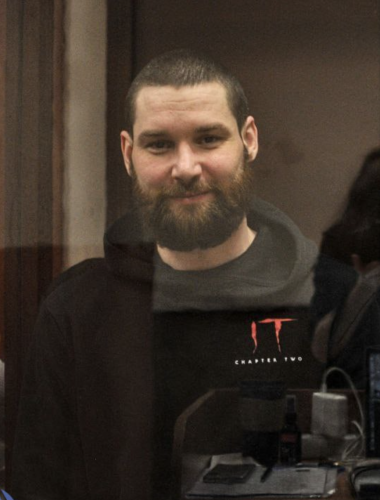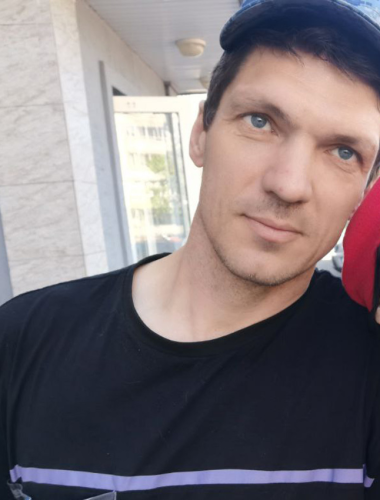Nine people convicted in the What Is to Be Done Telegram channel case are political prisoners
They have been sentenced to terms of up to eight years in a penal colony on charges of inciting hatred and involving others in riots for criticising the authorities and making calls to take part in protests
The ‘Political Prisoners. Memorial’ human rights project, in accordance with international standards, considers Dmitry Chebanov, Vyacheslav Abramov, Nikita Kreshchuk, Igor Kuznetsov, Aleksei Kurlov, Dmitry Lamanov, Ildar Sadriev, Zhanna Chernova, and Aleksei Yanochkin political prisoners. The nine defendants have been convicted on charges of inciting hatred or enmity and involving others in riots, for criticising the authorities and calling for protests in open Telegram channels and associated private chats. Their prosecution and conviction violate their rights to freedom of expression and a fair trial. We demand that all criminal charges be dropped against Dmitry Chebanov, Nikita Kreshchuk, Dmitry Lamanov, Ildar Sadriev, and Zhanna Chernova, as well as Maria Platonova, victim of an unlawful politically motivated prosecution. We also demand that the criminal cases against Vyacheslav Abramov, Igor Kuznetsov, Aleksei Kurlov, Aleksei Yanochkin, and Igor Nagibin be reheard in a fair trial.
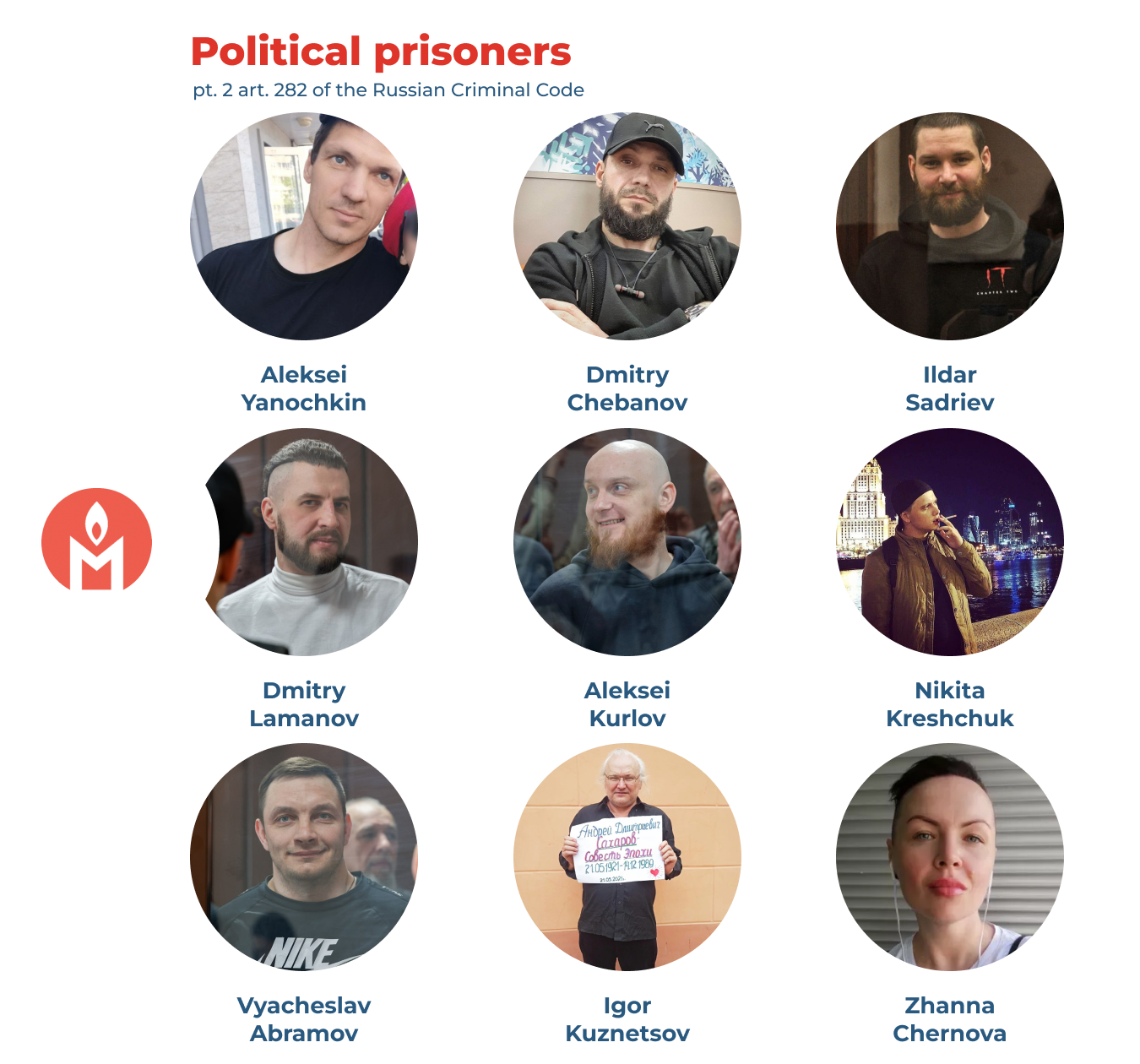
What were the charges in the case of the What Is to Be Done Telegram channel?
In early 2021, Moscow resident Dmitry Chebanov created the Telegram channel What Is to Be Done. The aim of the channel was to bring together people who wanted to ‘get rid of the corrupt authorities and the criminal regime.’ By mid-year, the channel had gained 5,000 subscribers. What Is to Be Done channels also appeared in the regions, along with related private chats in which the moderators communicated. Across all these channels, discussions were held about the need to change the government in Russia through nationwide peaceful protests.
The moderators scheduled a protest for 18 September 2021 and urged their subscribers to take to the streets. However, over the period 5-16 September, a series of arrests of moderators took place, effectively preventing the protests.
Among those remanded in custody were: from Moscow, Dmitry Chebanov, his partner Zhanna Chernova, Nikita Kreshchuk, and Aleksei Kurlov; from St. Petersburg, Vyacheslav Abramov; from Tomsk, Igor Kuznetsov; from the Yamalo-Nenets Autonomous Okrug, Dmitry Lamanov; from Krasnodar Krai, Igor Nagibin; from Tatarstan, Ildar Sadriev; and from Krasnoyarsk Krai, Aleksei Yanochkin. Maria Platonova, a resident of Moscow Oblast whom the investigative authorities claimed was a moderator of the Chelyabinsk regional chat, was placed under house arrest.
All the defendants were convicted on charges of inciting hatred or enmity using the Internet against the social group of ‘representatives of state authorities’ (Article 282, Part 2, of the Russian Criminal Code) and involving others in organising riots (Article 212, Part 1.1). Nagibin was also charged with illegal possession of explosives (Article 222.1, Part 1).
On 5 April 2024, the court sentenced seven defendants to terms in general-regime penal colonies: Nagibin to eight years; Chebanov to seven years and six months; Kreshchuk, Kurlov, Kuznetsov, Lamanov, and Yanochkin to six years; and Chernova and Platonova to five years and two months. Abramov and Sadriev were sentenced to six years and six months in a strict-regime penal colony. The court ruled that Platonova (who was pregnant at the time) should serve her sentence only when her child has reached the age of 14. The prosecution appealed against this latter ruling, but on 21 November 2024, the appeal court upheld the sentence.
Why do we consider the defendants political prisoners?
The court deemed criticisms of corruption, election fraud, persecution of dissenters and restrictions on freedom of speech and assembly to be ‘incitement of hatred and enmity toward representatives of the authorities.’ However, criticism of the government is not a crime but a legitimate exercise of freedom of expression.
In the prosecution for involving people in riots, what the court considered key pieces of evidence were in fact lawful calls to participate in peaceful protest. Some defendants (Abramov, Kuznetsov, Kurlov, Yanochkin, and Nagibin) had indeed discussed the possibility of violent resistance in private chats. However, the court failed to prove that their views reflected the movement’s overall stance. Furthermore, they never publicly incited violence, and searches conducted on the eve of the protest failed to find any evidence of preparations for acts of violence. Therefore, even if such statements did provide formal grounds for prosecution, they posed no real threat to society.
In our view, the actions of Chebanov, Kreshchuk, Lamanov, Sadriev, and Chernova do not constitute a crime. As for Platonova, according to the case materials she had no connection to the What Is to Be Done Telegram channels at all.
Given the lack of information about the charge of possessing explosives against Nagibin, we cannot recognise him as a political prisoner. However, we believe his prosecution shows strong signs of being politically motivated and serious legal violations.
A more detailed description of the cases of the nine individuals convicted in the What is to be Done Telegram channel case and of our position is available on our website.
Recognition of an individual as a political prisoner does not imply the ‘Political Prisoners. Memorial’ human rights project agrees with, or approves, their views, statements, or actions.
How can you help?
You can write to the nine individuals convicted at the following addresses:
In Russian:
- 127081, Россия, г. Москва, ул. Вилюйская, д. 4, ФКУ СИЗО-4 УФСИН России по г. Москве,
- Крещуку Никите Романовичу 1998 г. р.
- Кузнецову Игорю Васильевичу 1964 г. р.
- Курлову Алексею Сергеевичу 1991 г. р.
- Нагибину Игорю Геннадьевичу 1959 г. р.
- Чебанову Дмитрию Сергеевичу 1977 г. р.
- Яночкину Алексею Сергеевичу 1979 г. р.
- Садриеву Ильдару Илдусовичу, 1991 г. р.
- 125130, Россия, г. Москва, ул. Выборгская, д. 20, ФКУ СИЗО-5 УФСИН России по г. Москве,
- Абрамову Вячеславу Юрьевичу 1986 г. р.
- Ламанову Дмитрию Сергеевичу 1992 г. р.
- 109383, Россия, г. Москва, ул. Шоссейная, д. 92, ФКУ СИЗО-6 УФСИН России по г. Москве,
- Черновой Жанне Станиславовне 1982 г. р.
In English:
- Dmitry Sergeevich Chebanov (born 1977)
- Nikita Romanovich Kreshchuk (born 1998)
- Igor Vasilevich Kuznetsov (born 1964)
- Aleksei Sergeevich Kurlov (born 1991)
- Igor Gennadievich Nagibin (born 1959)
- Ildar Ildusovich Sadriev (born 1991)
- Aleksei Sergeevich Yanochkin (born 1979)
- Remand Prison No. 4, Federal Penitentiary Service of Russia for Moscow, 4 Vilyuyskaya Street, Moscow, 127081, Russia
- Vyacheslav Yurievich Abramov (born 1986)
- Dmitry Sergeevich Lamanov (born 1992)
- Remand Prison No. 5, Federal Penitentiary Service of Russia for Moscow, 20 Vyborgskaya Street, Moscow, 125130, Russia
- Zhanna Stanislavovna Chernova (born 1982)
- Remand Prison No. 6, Federal Penitentiary Service of Russia for Moscow, 92 Shosseynaya Street, Moscow, 109383, Russia
You can also send an e-mail via F-Pismo and ZT (for payments with Russian cards), PrisonMail (for payments with other cards), OVD-Info and Memorial-France (free of charge).
Please note that letters in languages other than Russian are highly unlikely to reach the recipient.
You can donate to help all political prisoners in Russia.
